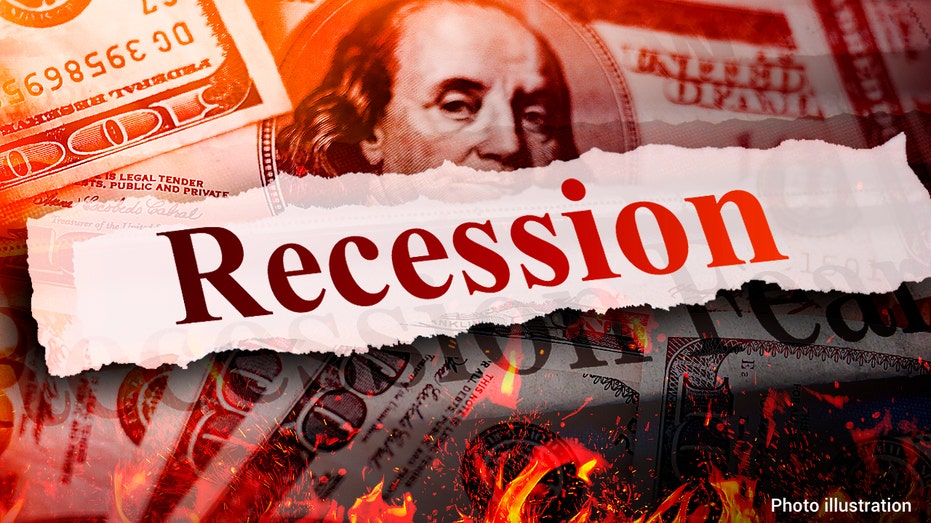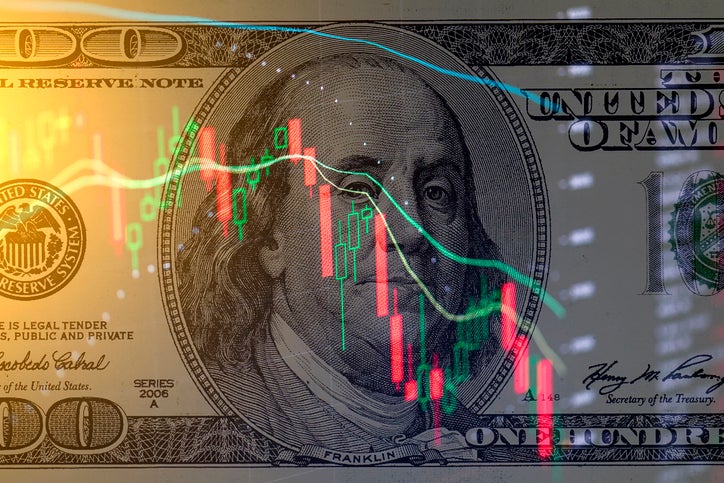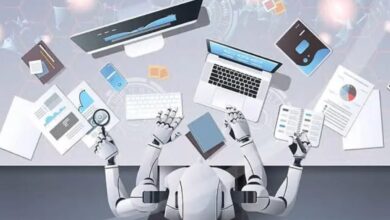Recession Or Not; Economists Are Left Pondering If The United States Is Headed For A Recession In 2024-25, What Would It Mean For The Rest Of The World?
United States is the world's largest economy and has strong trade and financial linkages with many other economies; hence if there is a recession in the US, it will have a ripple effect on the global economy as history shows us that globally synchronized recession episodes also coincide with US recessions.

The unexpected rise in the unemployment rate in the United States has left economists divided on whether the US is on the brink of a recession or not.
According to data released on Friday, the unemployment rate in the US has surged to a nearly three-year high of 4.3 per cent in July, up from 4.1 per cent in June and from a five-decade low of 3.4 per cent in April last year.
This, this significant increase has heightened the likelihood of an interest rate cut in the upcoming Federal Reserve meeting in September.
The question however that many are asking is if it is too late.
Gary Clyde Hufbauer, nonresident senior fellow at the Peterson Institute for International Economics, stated that the rise in the unemployment rate “points to a recession in 2025.”
He expects the Federal Reserve to begin cutting the policy rate in September and to continue doing so in subsequent meetings, which he believes will likely ensure a shallow recession.

The equity markets have also reacted to recession fears.
The Dow Jones average plummeted more than 700 points, nearly 2 per cent, in afternoon trading on Friday, while the broader S&P 500 fell by 2 per cent with the Wall Street banks now calling for more significant rate cuts than previously anticipated.
Economists at Goldman Sachs and Citigroup, among others, have revised their expectations to include a half-point rate cut in September and November and a quarter-point rate cut in December.
This comes after a week of weak economic data, including a slowdown in manufacturing and negative employment sentiments, which indicate an economic downturn.
However, not everyone agrees with the recession scenario.
“We don’t see a recession even though the stock market today is behaving like it anticipates one,” said Nancy Vanden Houten, lead economist at Oxford Economics.
She noted that while the jobs report was weaker than expected, there are underlying factors to consider. For instance, about 420,000 people entered the labor force last month, many of whom are new immigrants, which is a positive sign.
Additionally, the jobs survey showed a significant increase in the number of people on temporary layoff or not working due to bad weather, particularly in Texas because of Hurricane Beryl last month.
Matt Colyar, assistant director at Moody’s Analytics, added that the number of people not working in July due to bad weather was higher than in any non-winter month since September 2017, when Hurricanes Harvey, Irma, and Maria hit the Southeastern US.
“This is just evidence that the Federal Reserve’s efforts to slow down the economy, including reducing job switching and high raises of 8-10 percent, are working. This doesn’t signal a recession,” Colyar stated.
Moreover, Vanden Houten explained that the last pre-pandemic recession was driven by different factors, such as high household debt and unmanageable mortgages, a situation not present today.

The data has, however, sparked discussions about the “Sahm rule,” a measure created by former Federal Reserve economist Claudia Sahm to determine if a rising unemployment rate indicates a recession. Although the Sahm rule is close to triggering, Sahm herself doubts a recession is “imminent.”
For now, both Vanden Houten and Colyar maintain their earlier predictions of rate cuts: a quarter-point cut in September and another in December.
“It’ll take more than one bad jobs report for me to say that the long-anticipated recession is finally here,” said Colyar.
All eyes are now on next month’s jobs report for a clearer picture of the job market and the US economy.
In the meantime, economists like Colyar will monitor weekly unemployment claims for ground-level insights.
Nevertheless, the latest data will influence the upcoming presidential elections. Former President Donald Trump’s campaign stated on Friday that the jobs report is “more evidence that the Biden-Harris economy is failing Americans,” according to The Associated Press.
Any economic weakening will reflect poorly on the incumbent administration, Vanden Houten noted. Even though President Joe Biden is not running, Vice President Kamala Harris’s association with the Biden administration could negatively impact her, Vanden Houten pointed out.

Defining a Recession
There is no official definition of a recession, but it generally refers to a period of economic decline.
However, most analysts use two consecutive quarters of decline in a country’s real GDP as a practical definition but, this approach has limitations, as focusing solely on GDP is a narrow approach. Hence, it is often better to consider a wider range of economic activity indicators for a more accurate assessment.
In the United States, the National Bureau of Economic Research (NBER), which tracks the beginning and end dates of US recessions, uses a much broader definition.
The NBER’s Business Cycle Dating Committee defines a recession as “a significant decline in economic activity spread across the economy, lasting more than a few months, normally visible in production, employment, real income, and other indicators.”
The Committee considers a comprehensive set of measures, including GDP, employment, income, sales, and industrial production, to analyze economic trends.
Although an economy can show signs of weakening months before a recession begins, determining whether a country is in a true recession often takes time. For example, it took the NBER committee a year to announce the beginning and end dates of the most recent US recession.
This is understandable, as the decision process involves establishing a broad decline in economic activity over an extended period of time, after compiling and sifting through many variables that are often subject to revisions after their initial announcement.
Additionally, different measures of activity may exhibit conflicting behavior, making it difficult to identify whether the country is indeed suffering from a broad-based decline in economic activity.

Global Impact of a US Recession
Given that the US is the world’s largest economy with strong financial and trade links to many other countries, a US recession often coincides with a global recession. This can lead to economic shocks and the transmission of recessionary impacts from one country to another.
Therefore, in what ways can a US recession impact the world?
Firstly, there is a risk of Dollar Collapse.
If the US government struggles to pay its interest payments, foreign creditors may abandon the dollar, triggering a collapse.
Secondly, Businesses may cut back on production and manufacturing, leading to a decline in exports and overall economic activity.
Thirdly, Geopolitical risks could keep prices high for key commodities like oil and gas.
The result would be that some people may lose their jobs, (something that is already being witnessed not only in America but globally as well) and others may find it harder to get promotions or pay raises that keep up with inflation.
Benefit recipients and those on fixed incomes may struggle, especially if the government reduces spending on public services.
The Last Bit, while the recent rise in the US unemployment rate has sparked much debate among economists about the potential onset of a recession, there are, however, differing opinions on the immediacy and severity of such an economic downturn.
Some experts believe that the Federal Reserve’s measures to slow the economy are taking effect without necessarily indicating a recession, while others stress the need for more data to make a definitive call.
Therefore, understanding whether the US is in a recession is a complex process that involves analyzing a wide range of economic indicators over time.
Nevertheless, the global implications of a US recession are significant, given the country’s substantial influence on international trade and finance.
Hence, potential impacts include a collapse of the dollar, decreased economic activity, higher commodity prices, job losses, and struggles for fixed-income earners.
As the situation evolves, monitoring upcoming economic reports and weekly unemployment claims will be crucial for a clearer picture of the US economy’s trajectory.
The latest data will also play a critical role in shaping political dynamics and influencing the upcoming presidential elections.




